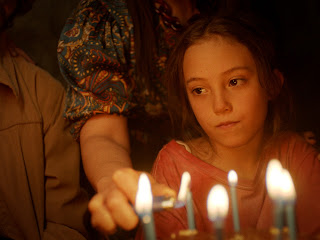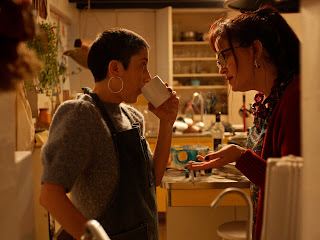More than three decades ago, Hubert Bals—the late creator and director of International Film Festival Rotterdam—established a fund to support filmmakers in the developing world, who Bals felt were capable of producing great cinema if given the right resources. Since its inception, the Hubert Bals Fund, or HBF, has assisted in the production of countless critically-lauded films, including Apichatpong Weerasethakul's Memoria, Ciro Guerra's outstanding Embrace of the Serpent, and Carlos Reygadas' Battle in Heaven. Both IFFR and the HBF have a hand in Lila Avilés Tótem, the director's eagerly awaited follow-up to her 2018 feature debut The Chambermaid, which that was selected as Mexico's entry for Best International Feature Film at the 2019 Oscars; while The Chambermaid ultimately failed to land a nomination, the acclaim undoubtedly helped Avilés secure support from the HBF for her latest feature.
Tótem was one of three HBF-backed projects from Latin America to play at this year's Berlinale—where it won the Ecumenical Jury Prize for best film in competition—and it continues to make its way around the world's film festivals with a stop at the BFI London Film Festival, where it screens today in NFT3. Huub Bals was a firm believer in Latin American filmmakers, and Tótem is a fairly typical example of the sort of cinema the region has been producing under the auspices of the HBF. Just as the bulk of The Chambermaid's drama unfolded in a single interior location—in that case, a luxury hotel—Tótem centres on a family home, as several generations come together to organise a surprise party. The celebration is for the 40th birthday of Tonatiuh (Mateo García Elizondo, co-writer of the excellent Desierto), a painter dying of terminal cancer. Such is Tonatiuh's condition, it is likely that this birthday will be his last.
Tonatiuh himself is nowhere to be seen for a large chunk of the film, with Avilés instead choosing to focus on other family members, particularly Tonatiuh's seven-year-old daughter Sol (Naíma Sentíes). Given the amount of people involved—it appears most, if not all, of Tonatiuh's extended family is squeezed into his house for this occasion—some bickering is inevitable, and indeed without it the film would be robbed of much of its dramatic impetus. Tonatiuh's psychotherapist father Roberto (Alberto Amador) is himself a cancer survivor and, despite remaining largely on the periphery of the preparations, he's a notable presence here, with his sober, cranky demeanour betraying the burden of a parent who will almost certainly outlive their child. Tótem is a somewhat immaculate work, one that is both lovingly filmed and beautifully acted, yet it never quite delivers the emotional wallop its setup promises.
Dutch short Hoeba! (English: Hooba!) is set several thousand years BC in Drenthe, where primeval life in the province—long before cities Assen and Emmen were ever though of—is proving tough for its inhabitants, who lack both food and shelter; while attempting to construct the latter, the former proves most distracting for a small group of primitive men, whose building work comes to an abrupt, calamitous halt as their attention turns to a mischievous rabbit. Sem Assink's charming, funny and colourful film—a dialogue-free affair which lasts for just a little over two minutes—is bound to get a fine reception when it plays as one of eight titles included in the LFF's Animated Shorts for Younger Audiences, which screens at the festival on Sunday, October 15.
Darren Arnold
Images: BFI





